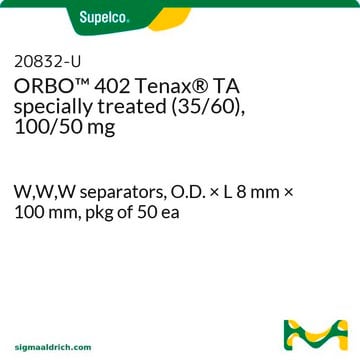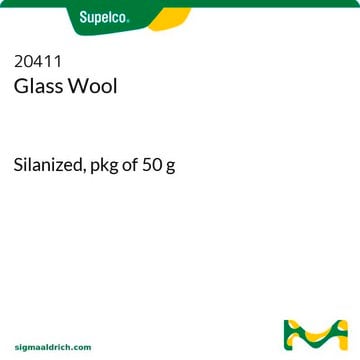40070-U
Benz[a]anthracene solution
certified reference material, 1000 μg/mL in methanol
Sinonimo/i:
Benzo[a]anthracene solution
About This Item
Prodotti consigliati
Grado
certified reference material
TraceCERT®
Nome Commerciale
TraceCERT®
CdA
current certificate can be downloaded
Confezionamento
ampule of 1 mL
Concentrazione
1000 μg/mL in methanol
tecniche
HPLC: suitable
gas chromatography (GC): suitable
applicazioni
cleaning products
cosmetics
environmental
food and beverages
personal care
Formato
single component solution
Temperatura di conservazione
2-8°C
Stringa SMILE
c1ccc2cc3c(ccc4ccccc34)cc2c1
InChI
1S/C18H12/c1-2-7-15-12-18-16(11-14(15)6-1)10-9-13-5-3-4-8-17(13)18/h1-12H
DXBHBZVCASKNBY-UHFFFAOYSA-N
Informazioni sul gene
human ... CYP1A2(1544)
Cerchi prodotti simili? Visita Guida al confronto tra prodotti
Applicazioni
Altre note
Note legali
Avvertenze
Danger
Indicazioni di pericolo
Classi di pericolo
Acute Tox. 3 Dermal - Acute Tox. 3 Inhalation - Acute Tox. 3 Oral - Aquatic Chronic 3 - Carc. 1B - STOT SE 1
Organi bersaglio
Eyes
Codice della classe di stoccaggio
3 - Flammable liquids
Classe di pericolosità dell'acqua (WGK)
WGK 3
Punto d’infiammabilità (°F)
49.5 °F
Punto d’infiammabilità (°C)
9.7 °C
Dispositivi di protezione individuale
Eyeshields, Faceshields, Gloves, type ABEK (EN14387) respirator filter
Scegli una delle versioni più recenti:
Possiedi già questo prodotto?
I documenti relativi ai prodotti acquistati recentemente sono disponibili nell’Archivio dei documenti.
Articoli
This application note describes the fast and efficient separation of the EU’s list of 15 + 1 polynuclear aromatic hydrocarbons (PAHs) using Ascentis® Express PAH HPLC column.
Il team dei nostri ricercatori vanta grande esperienza in tutte le aree della ricerca quali Life Science, scienza dei materiali, sintesi chimica, cromatografia, discipline analitiche, ecc..
Contatta l'Assistenza Tecnica.![Benzo[a]pyrene solution certified reference material, TraceCERT®, 1000 μg/mL in acetone](/deepweb/assets/sigmaaldrich/product/structures/253/820/be96d879-1811-46c0-8f11-612019691c2d/640/be96d879-1811-46c0-8f11-612019691c2d.png)
![Benz[a]anthracene analytical standard](/deepweb/assets/sigmaaldrich/product/structures/351/486/b3ddf157-a732-4ef8-83f0-c70a53404cb2/640/b3ddf157-a732-4ef8-83f0-c70a53404cb2.png)





![Benzo[b]fluoranthene certified reference material, TraceCERT®, Manufactured by: Sigma-Aldrich Production GmbH, Switzerland](/deepweb/assets/sigmaaldrich/product/structures/175/744/6fa5fca2-b6ec-47b6-ab7a-fe895843f226/640/6fa5fca2-b6ec-47b6-ab7a-fe895843f226.png)



